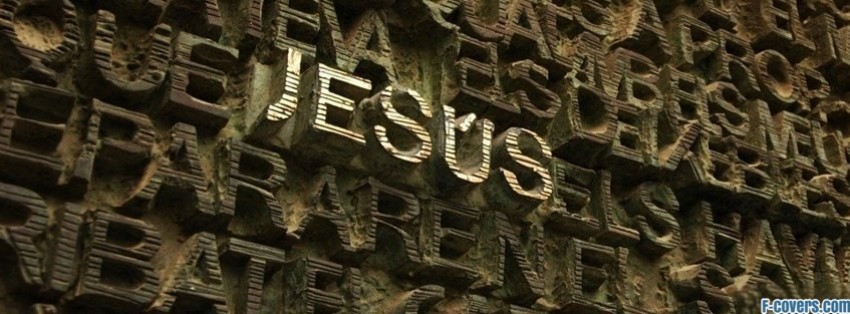 While many neo-pagans have a problem with Jesus and Christian symbolism they need to start applying the same rules that they do with the other religions they use.
While many neo-pagans have a problem with Jesus and Christian symbolism they need to start applying the same rules that they do with the other religions they use.
Ancient magicians tended to see all faiths as something they could use. It didn’t matter what the followers of that religious thought, rather than what that God represented the magician. We can see in ancient Alexandria the Jewish religion being borrowed by the magicians who wrote the Greek magical papyri. The divine name was a holy name; it didn’t matter if you believed in the religion that spawned it.
While many modern Christians or Jews would find this offensive, it requires respect and an acknowledgement by the pagan magician that God not only existed but had power.
This was already happening while Jesus was alive. We can see this in the Bible where the followers of Jesus moaned that non-followers were exorcising Demons in his name. There was also the cautionary tale of the exorcists who attempted to expel the demon in the name of Jesus only to find the daemon turn on them because they were not Christians.
In the PGM, Christ or Jesus appears with various spellings and has specific divine functions. There are those who try to link these spells with Gnostic Christianity, but this is mostly unnecessary.
Ancient magicians understood that a man is dying by violence there before his time had magical power. We see a lot of spells using the body parts of the executed victims because this power was considered significant. To a magician in Alexandria, Jesus of Nazareth, or Christ, was the exemplar of the murdered person. Even if the magician did not accept all the teachings of Christianity, they could see Jesus as a God who had an inherent magical ability.
For example, in PGM 13 288 there is a spell for releasing a person from their bonds. It involves saying: “Hear me Crestos, in tortures, help in necessity… Violent, very powerful in the world who created compulsion punishment and torture. Let every bond, every force be released that every chain is broken, every rope or every scrap, every not, every chain be opened, and let no one subdued me by force for I am.”
The Christ described here is hardly the meek and mild aspect of Jesus. This is the tortured, punished, and crucified Jesus. It is the God which is open to magical use because of its painful death.
While it is possible to see Christian dogma sitting behind the facade of these pagan spells, this is not particularly important. The PGM Crestos created compulsion, punishment and torture but he is also creator God. It is much like the first verse of John’s Gospel where Jesus helped create the universe. There are elements of Jesus as the judge at the end of days.
PGM also describes Jesus as the God of the Hebrews and tends to mix ham with various Jewish legends.
So where does this leave the pagan magician?
If you are following the same approach as a magician of Alexandria, it is perfectly acceptable to use the symbolism of any religion. Those “pagans” who have difficulty with Christianity perhaps due to bad experiences when they were growing up often fail to see that Jesus is a God just like the Zeus, Venus, Isis, or Thoth.
It would equally have Daemon’s which would be extremely useful to a modern magician. The many attributions of Jesus when stripped of their Christian context become extremely useful.
While the PGM may have emphasised the tortured aspect of Jesus other aspects make it a useful Godform. Jesus has magical abilities including exorcism, healing, resurrection, and judgement. He can be invoked as a force against corruption, to bring peace, charity, a voice for equality, to name a few. It is perfectly acceptable to invoke Jesus as a pagan god for any of these roles.
You don’t have to accept that God form as a personal saviour or its sacrifice for sin. After all, no one ever suggested that the followers of Christian Kabbalah needed to convert to Judaism. A pagan has to accept that all gods have a right to exist and be comfortable with dealing with them.

I have lately come to think of Jesus much more as a demigod very similar to Herakles. Ancient Greeks and Roman\’s would have had no problem calling on any other demigods, Jesus just became more popular as being humble and closer to their time than the ancient heroes
Right you are Nick, and I also think there may be yet another aspect to this methodology.
According to just about every “channelled” description of the Afterlife—and in particular Swedenborg, Andrew Jackson Davis and many others-people are grouped together after death in planes or even cities according to their religious beliefs (or lack thereof)
Accordingly, they may respond to “prayer” and intention which is formulated in their own religious language. In other words, some of the Mighty Dead are christians, and you might get them to exert an influence on your behalf by formulating it terms of publicly honoring their god. Prayer to St. Jude. anyone?
Thank you for sharing this most interesting view of Jesus. I was raised a Catholic, but felt that “THE CHRIST” was a separate issue of what Jesus was.